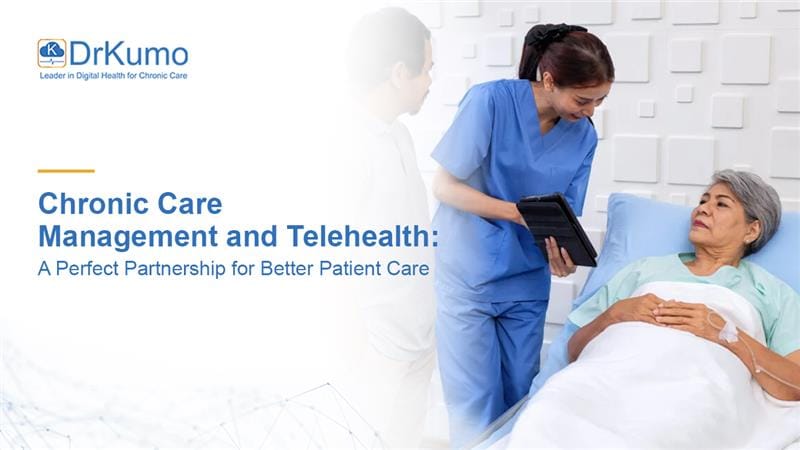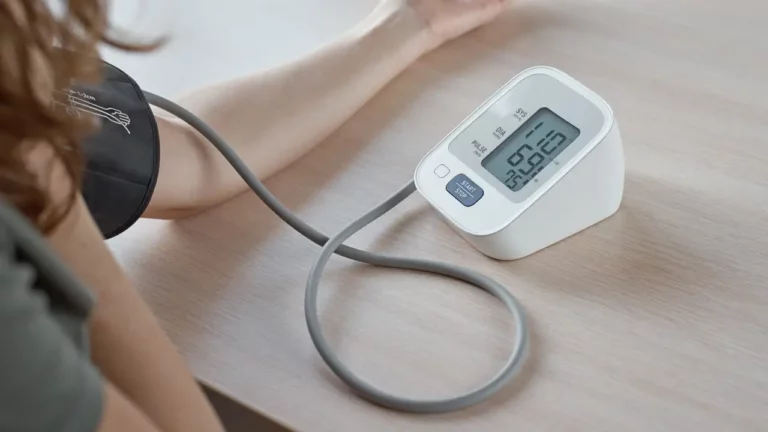Chronic care management (CCM) services are becoming essential for people managing long-term health conditions such as diabetes, heart disease, and chronic obstructive pulmonary disease (COPD). With over 60% of U.S. adults suffering from at least one chronic condition, there is an urgent need for coordinated healthcare services that keep patients healthy at home. According to the CDC, chronic conditions account for approximately 90% of the U.S.’s $4.1 trillion annual healthcare spending.
Telehealth has emerged as a transformative tool in delivering these services, offering virtual consultations, continuous monitoring, and improved care coordination. This partnership between CCM and telehealth enhances patient engagement and reduces healthcare costs by minimizing emergency room visits and hospital admissions.
This article explores how the combination of chronic care management and telehealth transforms healthcare by improving patient access, enhancing outcomes, and reducing costs. We will highlight the benefits of continuous support for individuals with chronic conditions, and introduce DrKumo’s Remote Patient Monitoring (RPM) solution as a powerful tool to optimize care delivery and patient engagement.
What is Chronic Care Management (CCM)?
Chronic care management refers to a collection of services designed for individuals managing two or more chronic conditions expected to last at least 12 months or until death. These services focus on care coordination, regular check-ins, and medication management to keep patients on track between doctor visits. CCM allows healthcare providers to monitor patient progress remotely, offering proactive care that can prevent complications or hospitalizations.
Patients participating in CCM services through Medicare must receive at least 20 minutes of non-face-to-face care monthly to qualify under CPT code 99490. CCM helps connect care across different settings—pharmacies, specialist clinics, and hospitals—ensuring patients do not fall through the cracks of fragmented healthcare systems
Telehealth: Revolutionizing Patient Care
Telehealth has become integral to modern healthcare, especially after the COVID-19 pandemic. According to the American Medical Association, telehealth use has surged by more than 53% from 2016 to 2017. It provides a platform for virtual doctor consultations, mental health therapy, and chronic disease management, ensuring patients receive timely care without traveling long distances.
This technology is particularly beneficial for rural communities, where access to healthcare services is limited. Additionally, telehealth improves patient outcomes by facilitating quick adjustments to medications and treatment plans, helping patients avoid complications between in-person visits.
How CCM and Telehealth Work Together
The combination of CCM and telehealth creates a continuous care loop between patients and healthcare providers. Virtual visits, remote patient monitoring (RPM), and electronic health records (EHRs) enable healthcare providers to stay updated on patient conditions in real time. For example, a patient with hypertension can receive blood pressure monitoring devices that sync data to the physician’s dashboard, allowing adjustments without an in-person consultation.
Patients also benefit from 24/7 access to healthcare professionals via telehealth platforms. This seamless interaction ensures healthcare providers can intervene early if health indicators show deterioration, avoiding unnecessary hospital visits. CCM and telehealth ensure patients remain engaged, connected, and compliant with their treatment plans, improving their long-term health.
Benefits of CCM Integrated with Telehealth
Integrating Chronic Care Management (CCM) with telehealth offers significant advantages in improving healthcare delivery. This approach expands access to care and optimizes outcomes for patients with chronic conditions. Here’s how these integrated services make an impact, supported by data:
- Improved Accessibility: Telehealth allows patients to receive care without traveling, benefiting those in rural or remote areas. Studies show that telehealth enhances access to care by removing geographic and logistical barriers, particularly for individuals with mobility challenges.
- Reduced Hospitalization Rates: Continuous remote monitoring can decrease hospital readmissions, as early detection of issues through telehealth minimizes the need for emergency interventions. According to a study published in the Journal of Medical Internet Research, home digital monitoring for high-risk post-discharge patients reduced hospitalizations from an average of 0.45 to 0.19 within three months (P=.03) and emergency department visits from 0.48 to 0.06 in the same period (P<.001).
- Enhanced Patient Engagement: Telehealth tools enable frequent interaction between patients and care providers. According to Harvard Health, currently, 76 percent of hospitals in the U.S. connect doctors and patients remotely via telehealth, a significant increase from 35 percent a decade ago. This growth reflects the rising acceptance and utilization of telehealth services, particularly in response to the COVID-19 pandemic, which has heightened interest in virtual care options.
- Cost Savings: Integrating CCM with telehealth has reduced healthcare costs by preventing expensive hospital admissions and promoting preventive care. For instance, according to recent research, remote patient monitoring programs have been associated with an 11% reduction in healthcare spending.
- Patient Empowerment: Access to real-time health data through mobile health tools empowers patients to manage their health actively. This approach has enhanced medication adherence and promotes better self-care habits.
Key Features of Chronic Care Management Programs
Chronic Care Management (CCM) programs are designed to provide comprehensive support for individuals with chronic conditions, ensuring that their healthcare needs are met effectively. Here are some key features that characterize these programs:
- Comprehensive Care Plans: Individualized plans addressing each patient’s health goals and treatment strategies.
- 24/7 Access to Providers: Around-the-clock communication to address urgent health concerns.
- Medication Management: Routine prescription reviews to avoid drug interactions and ensure adherence.
- Care Coordination: Collaboration across specialists, pharmacies, and hospitals to create a unified care experience.
CCM Services and Telehealth Platforms
Telehealth platforms offering CCM services rely heavily on remote patient monitoring (RPM) tools. These platforms ensure healthcare providers have a continuous flow of patient data, including vital signs, blood glucose levels, and medication adherence. Integrating electronic health records (EHRs) helps providers make real-time decisions, enhancing the quality of care across multiple healthcare settings.
Medicare Coverage and CCM CPT Codes
Medicare recognizes the importance of CCM and reimburses providers through CPT code 99490, which covers 20 minutes of care coordination per month. Additional time to manage complex cases can be billed under CPT codes 99487 or 99489. To participate, patients must provide informed consent and agree to non-face-to-face services.
Eligible beneficiaries also enjoy cost-sharing benefits through Medicare Part B, but some services may require supplemental insurance coverage. Dually eligible patients enrolled in Medicare and Medicaid typically face minimal out-of-pocket costs, ensuring equitable access to care.
Managing Mental Health with Telehealth and CCM
Telehealth is becoming a lifeline for patients managing chronic mental health conditions like depression and anxiety. Virtual therapy sessions and psychiatric consultations ensure continuous mental health support. By integrating mental health services into CCM programs, healthcare providers can offer holistic care that addresses physical and emotional well-being.
Emerging Trends in CCM and Telehealth
Emerging trends in Chronic Care Management (CCM) and telehealth are reshaping the landscape of healthcare delivery, focusing on proactive and personalized patient care. Here are some key developments:
- AI and Predictive Analytics: Helps identify risks early, enabling timely interventions.
- Wearable Technology: Collects continuous health data to enhance the effectiveness of chronic care.
- Policy Changes: Helps expand telehealth reimbursement and support from Medicare and private payers.
Transform Your Practice with DrKumo’s RPM Solution
DrKumo’s RPM solution supports proactive, patient-centered care through continuous monitoring and real-time data insights. By providing real-time data, DrKumo empowers clinicians to make timely decisions, which may help in preventing complications and reducing hospital readmissions.
The DrKumo platform offers secure communication channels that strengthen patient-provider relationships, ensuring patients stay engaged and connected throughout their health journey. Designed for ease of use, DrKumo’s RPM technology seamlessly integrates into any medical practice, enhancing workflow efficiency while optimizing patient outcomes.
By adopting DrKumo’s RPM solution, any medical provider can elevate the quality of care, improve chronic condition management, and position their practice to be at the very forefront of modern healthcare.
Takeaways
Chronic care management and telehealth represent a paradigm shift in healthcare delivery, offering patients better access to care, improved outcomes, and reduced costs. This partnership ensures continuous care for individuals managing chronic conditions, empowering them to take charge of their health.
Take your practice to the next level with DrKumo’s Remote Patient Monitoring (RPM) solution. Our advanced technology enables continuous patient monitoring, real-time data insights, and secure communication between patients and providers—fostering better collaboration and informed care decisions.
Contact DrKumo today to learn how our RPM solution can elevate the care you provide and drive better health outcomes for your patients!
Disclaimer: This article is for informational purposes only and is not intended as medical advice. Consult a qualified healthcare professional before choosing chronic care management or telehealth services.








